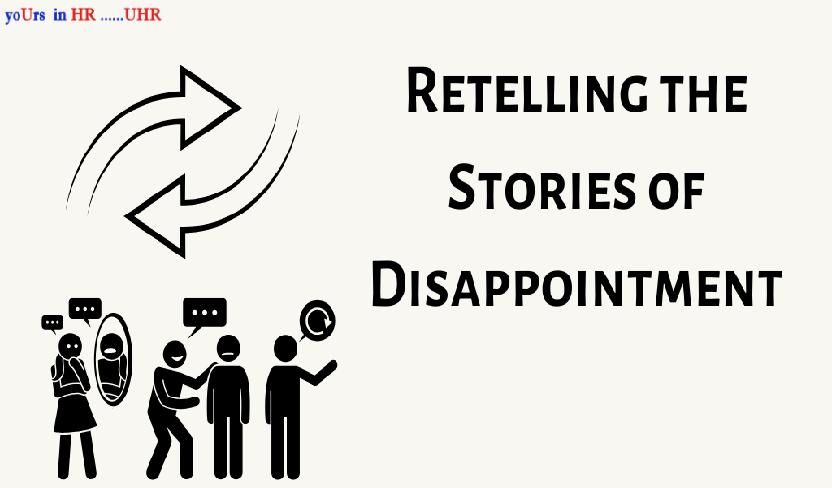
Priyam has been working at his company for two years now. He is in-charge of the sanitation and cleanliness management staff at his office. Although he works in a corporate office, his is not your typical high-profile corporate job one would associate with power and prestige. The income is decent- not too high as compared to certain jobs. But he is happy at his job, and he likes going to work.
Prita has been working at a different company for two years now. She is in-charge of the marketing department at the company. A high-profile, high-power, high-earning job. Since she is in-charge, she often gets to delegate work, which also reduces her stress- and work- load by quite a lot. But she is not happy at her job, and she does not like going to work.
What is it that makes a difference to these two employees? Objectively, on paper, Prita should be the happier person. After all, she earns more, is on a more prestigious position conventionally speaking, and definitely is supposed to have more clout at the workplace. But why is it that the opposite is the case?
The answer is simple but profound- Priyam feels like he matters at work. Prita doesn’t feel like she matters at work.
Priyam’s company makes him feel that he matters at work. His job is not that high-stakes and high-profile- hid company won’t lose millions if she falters. But he nevertheless matters, and is made to feel that he matters. His boss Shweta routinely appreciates his work. She thanks him for the work he does at the company. He and his work are treated with respect. He gets opportunities- in fact, Priyam started out as a simple cleaning staff member, and eventually, rose to become the head of that department. His work might not be conventionally ‘high-profile’ but everyone in the company understands and respects the effort that goes behind keeping the office space clean, organised. Right from the handwashes in the bathroom, to the plates and cutlery in the kitchen, everything is in perfect order thanks to Pushpam and his team.
And everyone, especially Shweta understands this value that Priyam generates. More importantly, Shweta communicates this to Priyam. Priyam and his work matter. Priyam feels this way, and that makes him happy at his job.
Prita on the other hand feels like she doesn’t matter at her job. Her boss Anil, although appreciates Prita’s work and her team-management skills, he doesn’t communicate that. No matter how much of a success a project by Prita garners, she almost never gets a ‘good job’. It has been long since Prita has received any acknowledgement to her contributions to the company. A certificate perhaps, a token of appreciation, but that is it. Regular words and regular actions do not make Prita feel like she matters at work or what she does is appreciated. Since Anil is uncommunicative, Prita’s other colleagues reflect the same mindset- if the boss herself doesn’t say anything nice, they also don’t feel the need to appreciate Prita.
Prita wonders if she is doing something wrong, and if the certificates and tokens are just formalities. Her confidence levels have come down over the years at the company, despite being the head of a department herself. Prita feels this way, and that makes her unhappy at her job.
It is a simple matter of feeling like one matters at work.
As people working among a collective of professionals, whether we are employers, or colleagues, according to research by Psychology Today, making our employees or fellow co-workers feel mattered at work can contribute to their general well-being, job satisfaction, and lower chances of burnout, stress and anxiety. It can lead to one being happier in leadership positions. Moreover, it can also lead to higher employee retention.
So, what can we do to make our employees and/or co-workers feel like they matter at work? Simple things, such as:
- Thanking people for their work. Acknowledge their efforts. Not just through tokens and certificates, but say it through your words and actions. Even simple recognition can go a long way.
- Let people know you have belief in their capabilities. If you are at a mentorship position, you can also provide them opportunities to grow so that they realise that you genuinely care about them, and haven’t just hired them for convenience.
- When you observe something remarkable about people, don’t simply keep it to yourself- make it known that you see what they are doing. If you are the boss, this acknowledgement will hold even more weight.
- If you aren’t the boss, you can still tell someone how you appreciate their work, and if you have opportunity, you can bring it up in front of everyone, or at least communicate that to your boss.
At the core lies the fact that people who do the hard work should know that you see them.
Psychology and age-old wisdom say that, often the key to living a fulfilled life is not happiness. It is meaning. And the first step to finding meaning at work, is to feel that what we do matters. That what we do is a meaningful contribution to the fabric of our profession. When we find this meaning by feeling like the work we do matter, happiness soon enough, follows.





